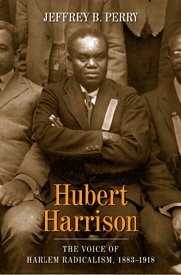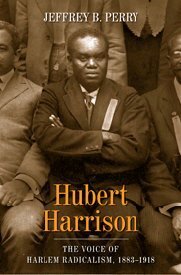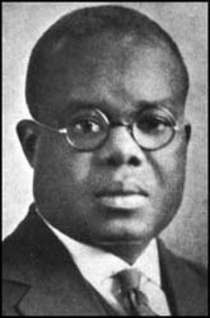Jeffrey B. Perry Blog
Facts of the current conjuncture . . .millions are suffering under the white supremacist shaping of this system, . . . .
August 25, 2015
As the economic situation worsens people are encouraged to read “The Developing Conjuncture and Some Insights From Hubert Harrison and Theodore W. Allen on the Centrality of the Fight Against White Supremacy” at the TOP LEFT HERE or at Cultural Logic HERE
Harrison and Allen were two of the twentieth century’s most important thinkers on issues of race and class and they have much to offer for struggles ahead.
“Overall, the facts of the current conjuncture indicate that millions of poor and working people are suffering under U.S. capitalism, that millions are suffering under the white supremacist shaping of this system, that these conditions are inter-related, and that these conditions are worsening.”
Table of Contents
Epigraph
Introduction
Hubert Harrison
Theodore W. Allen
Harrison and Allen and the Centrality of the Struggle Against White-Supremacy
Some Class and Racial Aspects of The Conjuncture
Deepening Economic Crisis
U.S. Workers Faring Badly
White Supremacist Shaping
Wisconsin
Millions are Suffering and Conditions are Worsening
Insights from Hubert Harrison
Arrival in America, Contrast with St. Croix
Socialist Party Writings
“Southernism or Socialism – which?”
The Socialist Party Puts [the “White”] Race First and Class After
Class Consciousness, White Supremacy, and the "Duty to Champion the Cause of the Negro"
On “The Touchstone” and the Two-Fold Character of Democracy in America
Concentrated Race-Conscious Work in the Black Community
Capitalist Imperialism and the Need to Break Down Exclusion Walls of White Workers
The International Colored Unity League
Struggle Against White Supremacy is Central
Insights from Theodore W. Allen
Early Research and Writings and Pioneering Use of “White Skin Privilege” Concept
White Blindspot
Why No Socialism? . . . and The Main Retardant to Working Class Consciousness
The Role of White Supremacy in Three Previous Crises
The Great Depression . . . and the White Supremacist Response
Response to Four Arguments Against and Five “Artful Dodges”
Early 1970s Writings and Strategy
“The Invention of the White Race”
Other Important Contributions in Writings on the Colonial Period
Inventing the “White Race” and Fixing “a perpetual Brand upon Free Negros”
Political Economic Aspects of the Invention of the “White Race”
Racial Oppression and National Oppression
“Racial Slavery” and “Slavery”
Male Supremacy, Gender Oppression, and Laws Affecting the Family
Slavery as Capitalism, Slaveholders as Capitalists, Enslaved as Proletarians
Class-Conscious, Anti-White Supremacist Counter Narrative – Comments on Jordan and Morgan
Not Simply a Social Construct, But a Ruling Class Social Control Formation . . . and Comments on Roediger
The “White Race” and “White Race” Privilege
On the Bifurcation of “Labor History” and “Black History” and on the “National Question”
Later Writings . . . “Toward a Revolution in Labor History”
Strategy
The Struggle Ahead
Addendum [re “Daedalus”]
Read More
Harrison and Allen were two of the twentieth century’s most important thinkers on issues of race and class and they have much to offer for struggles ahead.
“Overall, the facts of the current conjuncture indicate that millions of poor and working people are suffering under U.S. capitalism, that millions are suffering under the white supremacist shaping of this system, that these conditions are inter-related, and that these conditions are worsening.”
Table of Contents
Epigraph
Introduction
Hubert Harrison
Theodore W. Allen
Harrison and Allen and the Centrality of the Struggle Against White-Supremacy
Some Class and Racial Aspects of The Conjuncture
Deepening Economic Crisis
U.S. Workers Faring Badly
White Supremacist Shaping
Wisconsin
Millions are Suffering and Conditions are Worsening
Insights from Hubert Harrison
Arrival in America, Contrast with St. Croix
Socialist Party Writings
“Southernism or Socialism – which?”
The Socialist Party Puts [the “White”] Race First and Class After
Class Consciousness, White Supremacy, and the "Duty to Champion the Cause of the Negro"
On “The Touchstone” and the Two-Fold Character of Democracy in America
Concentrated Race-Conscious Work in the Black Community
Capitalist Imperialism and the Need to Break Down Exclusion Walls of White Workers
The International Colored Unity League
Struggle Against White Supremacy is Central
Insights from Theodore W. Allen
Early Research and Writings and Pioneering Use of “White Skin Privilege” Concept
White Blindspot
Why No Socialism? . . . and The Main Retardant to Working Class Consciousness
The Role of White Supremacy in Three Previous Crises
The Great Depression . . . and the White Supremacist Response
Response to Four Arguments Against and Five “Artful Dodges”
Early 1970s Writings and Strategy
“The Invention of the White Race”
Other Important Contributions in Writings on the Colonial Period
Inventing the “White Race” and Fixing “a perpetual Brand upon Free Negros”
Political Economic Aspects of the Invention of the “White Race”
Racial Oppression and National Oppression
“Racial Slavery” and “Slavery”
Male Supremacy, Gender Oppression, and Laws Affecting the Family
Slavery as Capitalism, Slaveholders as Capitalists, Enslaved as Proletarians
Class-Conscious, Anti-White Supremacist Counter Narrative – Comments on Jordan and Morgan
Not Simply a Social Construct, But a Ruling Class Social Control Formation . . . and Comments on Roediger
The “White Race” and “White Race” Privilege
On the Bifurcation of “Labor History” and “Black History” and on the “National Question”
Later Writings . . . “Toward a Revolution in Labor History”
Strategy
The Struggle Ahead
Addendum [re “Daedalus”]
Read More
"Don't Forget The Contributions of Black History Giant Hubert Harrison" by Jeffrey B. Perry AfricanGlobe.net May 5, 2014
May 6, 2014
"Don't Forget The Contributions of Black History Giant Hubert Harrison," at AfricanGlobe.net, May 5, 2014, Click Here!
"Hubert Harrison: Keep alive the struggles and memory of this giant of Black History" by Jeffrey B. Perry Pambazuka News May 1, 2014
May 2, 2014

"Hubert Harrison: Keep alive the struggles and memory of this giant of Black History" in Pambazuka News May 1, 2014 - Read the article HERE
"Happy 131st Birthday Hubert Harrison, Giant of Black History" by Jeffrey B. Perry Black Agenda Report April 30, 2014
April 30, 2014
"Happy 131st Birthday Hubert Harrison, Giant of Black History" in Black Agenda Report April 30, 2014 - Read the article HERE
"Don't Forget The Contributions of Black History Giant Hubert Harrison" by Jeffrey B. Perry Alternet April 28, 2014
April 29, 2014
"Don't Forget The Contributions of Black History Giant Hubert Harrison: Harrison was a self-described radical internationalist and his spirit lives on today" in Alternet April 28, 2014 - Read the article HERE
"Hubert Harrison: Great Black Intellectual Activist Who Was Ahead Of His Time" by Jeffrey B. Perry Black Star News April 2014
April 27, 2014

April 27, 1883 - December 17, 1927
"Hubert Harrison: Great Black Intellectual Activist Who Was Ahead Of His Time" in Black Star News April 25, 2014 - Read the article HERE
"Hubert Harrison: Celebrating this Giant of Black History" by Jeffrey B. Perry Hartford Guardian April 2014
April 27, 2014
"Hubert Harrison: Celebrating this Giant of Black History" in Hartford Guardian April 26, 2014 - Read the article HERE
December 17th is the Anniversary of the Death of Hubert Harrison in 1927 at Age 44
December 16, 2013
Hubert Harrison (1883-1927) is one of the truly important figures of early twentieth-century America. A brilliant writer, orator, educator, critic, and political activist, he was described by the historian Joel A. Rogers, in World’s Great Men of Color as “the foremost Afro-American intellect of his time.” Labor and civil rights leader A. Philip Randolph described Harrison as “the father of Harlem Radicalism.” Harrison’s friend and pallbearer, Arthur Schomburg, fully aware of his popularity, eulogized to the thousands attending Harrison’s Harlem funeral that he was also “ahead of his time.”
Born in St. Croix, Danish West Indies, in 1883, to a Bajan mother and a Crucian father, Harrison arrived in New York as a seventeen-year-old orphan in 1900. He made his mark in the United States by struggling against class and racial oppression, by helping to create a remarkably rich and vibrant intellectual life among African Americans, and by working for the enlightened development of the lives of “the common people.” He consistently emphasized the need for working class people to develop class-consciousness; for “Negroes” to develop race consciousness, self-reliance, and self-respect; and for all those he reached to challenge white supremacy and develop modern, scientific, critical, and independent thought as a means toward liberation.
A self-described “radical internationalist,” Harrison was extremely well-versed in history and events in Africa, Asia, the Mideast, the Americas, and Europe. More than any other political leader of his era, he combined class-consciousness and anti-white supremacist race consciousness in a coherent political radicalism. He opposed capitalism and maintained that white supremacy was central to capitalist rule in the United States. He emphasized that “politically, the Negro is the touchstone of the modern democratic idea”; that “as long as the Color Line exists, all the perfumed protestations of Democracy on the part of the white race” were “downright lying,” that “the cant of ‘Democracy’” was “intended as dust in the eyes of white voters,” and that true democracy and equality for “Negroes” implied “a revolution . . . startling even to think of.”
Working from this theoretical framework, he was active with a wide variety of movements and organizations and played signal roles in the development of what were, up to that time, the largest class radical movement (socialism) and the largest race radical movement (the “New Negro”/Garvey movement) in U.S. history. His ideas on the centrality of the struggle against white supremacy anticipated the profound transformative power of the Civil Rights/Black Liberation struggles of the 1960s and his thoughts on “democracy in America” offer penetrating insights on the limitations and potential of America in the twenty-first century.
Harrison served as the foremost Black organizer, agitator, and theoretician in the Socialist Party of New York during its 1912 heyday; he founded the first organization (the Liberty League) and the first newspaper (The Voice) of the militant, World War I-era “New Negro” movement; and he served as the editor of the New Negro in 1919 and as the editor of the Negro World and principal radical influence on the Garvey movement during its radical high point in 1920. His views on race and class profoundly influenced a generation of “New Negro” militants including the class radical A. Philip Randolph and the race radical Marcus Garvey. Considered more race conscious than Randolph and more class conscious than Garvey, Harrison is a key ideological link between the two great trends of the Black Liberation Movement--the labor and civil rights trend associated with Martin Luther King, Jr., and the race and nationalist trend associated with Malcolm X. (Randolph and Garvey were, respectively, the direct links to King marching on Washington, with Randolph at his side, and to Malcolm, whose parents were involved with the Garvey movement, speaking militantly and proudly on street corners in Harlem.)
Harrison was not only a political radical, however. J. A. Rogers described him as an “Intellectual Giant and Free-Lance Educator,” whose contributions were wide-ranging, innovative, and influential. He was an immensely skilled and popular orator and educator who spoke and/or read six languages; a highly praised journalist, critic, and book reviewer (reportedly the first regular Black book reviewer in history); a pioneer Black activist in the freethought and birth control movements; a bibliophile and library builder and popularizer who helped develop the 135th Street Public Library into what became known as the internationally famous Schomburg Center for Research in Black Culture; a pioneer Black lecturer for the New York City Board of Education and one of its foremost orators). His biography offers profound insights on race, class, religion, immigration, war, democracy, and social change in America.
For information on vol. 1 of his biography, Hubert Harrison: The Voice of Harlem Radicalism, 1883-1918 (Columbia University Press) CLICK HERE and CLICK HERE
For writings by and about Hubert Harrison CLICK HERE
December 17th is the anniversary of the death of Hubert Harrison in 1927 at age 44. – Please help to spread the word about his important life and work!
Read More
Born in St. Croix, Danish West Indies, in 1883, to a Bajan mother and a Crucian father, Harrison arrived in New York as a seventeen-year-old orphan in 1900. He made his mark in the United States by struggling against class and racial oppression, by helping to create a remarkably rich and vibrant intellectual life among African Americans, and by working for the enlightened development of the lives of “the common people.” He consistently emphasized the need for working class people to develop class-consciousness; for “Negroes” to develop race consciousness, self-reliance, and self-respect; and for all those he reached to challenge white supremacy and develop modern, scientific, critical, and independent thought as a means toward liberation.
A self-described “radical internationalist,” Harrison was extremely well-versed in history and events in Africa, Asia, the Mideast, the Americas, and Europe. More than any other political leader of his era, he combined class-consciousness and anti-white supremacist race consciousness in a coherent political radicalism. He opposed capitalism and maintained that white supremacy was central to capitalist rule in the United States. He emphasized that “politically, the Negro is the touchstone of the modern democratic idea”; that “as long as the Color Line exists, all the perfumed protestations of Democracy on the part of the white race” were “downright lying,” that “the cant of ‘Democracy’” was “intended as dust in the eyes of white voters,” and that true democracy and equality for “Negroes” implied “a revolution . . . startling even to think of.”
Working from this theoretical framework, he was active with a wide variety of movements and organizations and played signal roles in the development of what were, up to that time, the largest class radical movement (socialism) and the largest race radical movement (the “New Negro”/Garvey movement) in U.S. history. His ideas on the centrality of the struggle against white supremacy anticipated the profound transformative power of the Civil Rights/Black Liberation struggles of the 1960s and his thoughts on “democracy in America” offer penetrating insights on the limitations and potential of America in the twenty-first century.
Harrison served as the foremost Black organizer, agitator, and theoretician in the Socialist Party of New York during its 1912 heyday; he founded the first organization (the Liberty League) and the first newspaper (The Voice) of the militant, World War I-era “New Negro” movement; and he served as the editor of the New Negro in 1919 and as the editor of the Negro World and principal radical influence on the Garvey movement during its radical high point in 1920. His views on race and class profoundly influenced a generation of “New Negro” militants including the class radical A. Philip Randolph and the race radical Marcus Garvey. Considered more race conscious than Randolph and more class conscious than Garvey, Harrison is a key ideological link between the two great trends of the Black Liberation Movement--the labor and civil rights trend associated with Martin Luther King, Jr., and the race and nationalist trend associated with Malcolm X. (Randolph and Garvey were, respectively, the direct links to King marching on Washington, with Randolph at his side, and to Malcolm, whose parents were involved with the Garvey movement, speaking militantly and proudly on street corners in Harlem.)
Harrison was not only a political radical, however. J. A. Rogers described him as an “Intellectual Giant and Free-Lance Educator,” whose contributions were wide-ranging, innovative, and influential. He was an immensely skilled and popular orator and educator who spoke and/or read six languages; a highly praised journalist, critic, and book reviewer (reportedly the first regular Black book reviewer in history); a pioneer Black activist in the freethought and birth control movements; a bibliophile and library builder and popularizer who helped develop the 135th Street Public Library into what became known as the internationally famous Schomburg Center for Research in Black Culture; a pioneer Black lecturer for the New York City Board of Education and one of its foremost orators). His biography offers profound insights on race, class, religion, immigration, war, democracy, and social change in America.
For information on vol. 1 of his biography, Hubert Harrison: The Voice of Harlem Radicalism, 1883-1918 (Columbia University Press) CLICK HERE and CLICK HERE
For writings by and about Hubert Harrison CLICK HERE
December 17th is the anniversary of the death of Hubert Harrison in 1927 at age 44. – Please help to spread the word about his important life and work!
Read More
1 Comments


